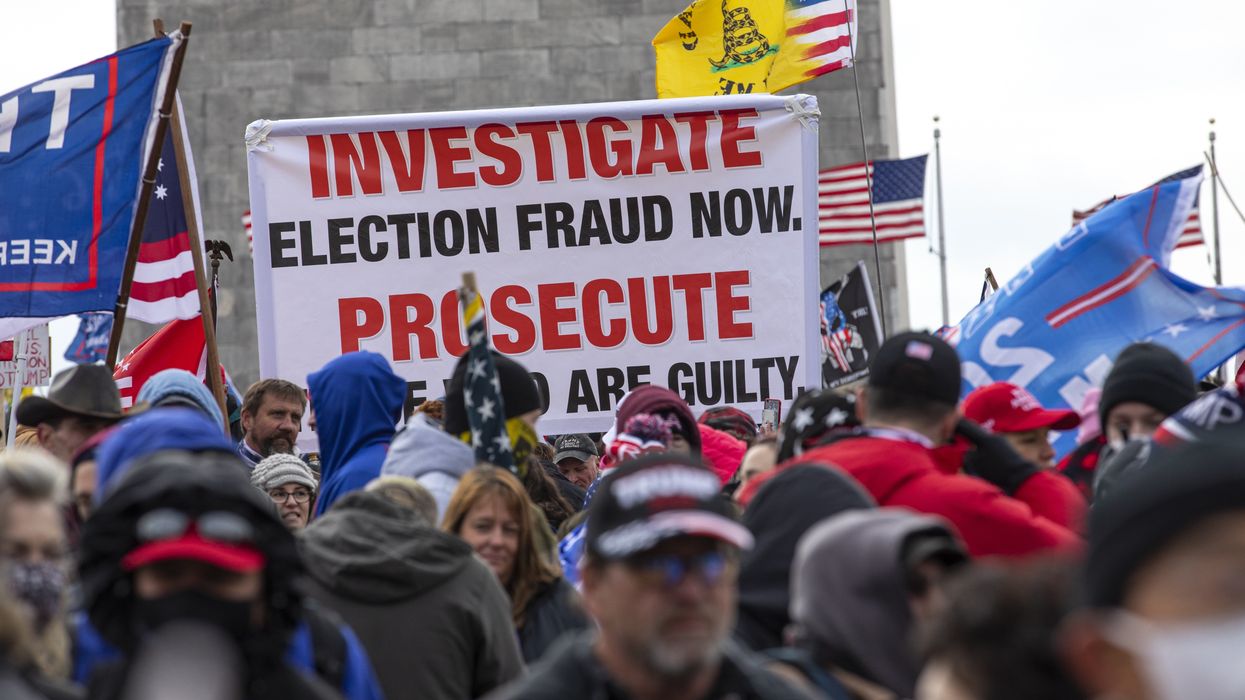Johnson is the executive director of the Election Reformers Network, a national nonpartisan organization advancing common-sense reforms to protect elections from polarization.
A year from now, in early December 2024, America could be confronting one of the toughest challenges a democracy can face -- one that voters are not well prepared for. In the next presidential election, some states will likely be won by very tight margins, close enough that one side may decide to legally challenge the results. That scenario, a close and contested election, can be tough on democracy in the best of circumstances. As we learned in 2020, in our bitterly divided country, it’s potentially explosive.
But “close and contested” doesn’t mean “tainted and suspicious” – and it’s critical that Americans understand that difference.
Sports have clear rules for what happens when a game ends in a tie, or when a team challenges a call by a referee. Baseball fans know a tie game goes into extra innings, and that both sides get a chance to score each inning. Pro football fans know teams can challenge a referee’s decision, but the ruling on the field stands unless there is clear video evidence to overturn it. These are often the most suspenseful parts of the game, but they certainly aren’t a surprise to fans, much less a sign of breakdown in the game itself. It’s inevitable that some games end in ties, and inevitable that some elections are close and contested.
Citizens can have full confidence that the response to a close and contested election won't be made up on the fly, but will be guided by laws and procedures clearly established in advance. Every state has laws addressing the core elements, including provisions for recounts and for legal challenges by competing candidates. These rules are anchored in the key principle that courts should decide election contests, because courts — even if sometimes imperfect —are uniquely designed to consider evidence and render judgment.
But having good rules in place is only half the battle. Where we are dangerously underprepared is in voter understanding of those rules.
In a country with extensive coverage of elections and civic campaigns explaining why and how to vote, there is remarkably little available information about contested elections. Websites of secretaries of state cover many election topics but often have nothing on the rules of “election overtime.” Post-election news programs track each step toward the announcement of the media-projected winner but give little attention to the process that decides the actual legal winner.
The absence of this information is increasingly dangerous. Many voters have all the intensity of the most passionate sports fans but none of their knowledge of the rules. Many stand ready, despite that lack of knowledge, to race onto the field in protest of perceived unfairness.
To illustrate the kind of awareness we need, consider how well most Americans understand core principles of trial by jury. From courtroom scenes in movies and television, Americans know almost intuitively that a conviction requires proof beyond a reasonable doubt, and any allegations must be backed with evidence tested in court.
Likewise, election results should be presumed accurate unless and until there is clear evidence to prove otherwise. A change in those results — and a change in outcome — not based on rigorous evidence exposed to cross examination in court would be deeply unfair.
The analogy that seems to prevail instead is one of taint and purity. From this perspective, any single violation makes a whole election suspect, even if that violation impacts far fewer votes than the margin of victory. A single flaw is often assumed to prove the proverbial tip of the iceberg. We would never accept a criminal conviction — or any kind of legal judgment — based on such vague and unsubstantiated allegations, and voters need to think about elections in the same way.
And we need help building that understanding from political reporters, news channels and the media more broadly. The organization I run, Election Reformers Network, ran a successful pilot in 2022 to provide networks of journalists with information to help them better explain close and contested elections to readers. We need similar programs across all swing states so information is in circulation long in advance of election day to help voters know what to expect.
State and local election officials should provide more information on these issues on their websites, which are such important sources of trusted information for voters. State Bar Associations could also help judges do a better job explaining election decisions in more accessible language for voters.
America led the way in developing democracy into the most important competition humans ever invented. Better understanding of its most important rules will ensure we pass down this great institution to many many generations ahead.



















 Senate Committee on Commerce, Science, and Transportation ranking member Sen. Maria Cantwell (D-WA) (R) questions witnesses during a hearing in the Russell Senate Office Building on Capitol Hill on February 10, 2026 in Washington, DC. The hearing explored the proposed $3.5 billion acquisition of Tegna Inc. by Nexstar Media Group, which would create the largest regional TV station operator in the United States. (Photo by Chip Somodevilla/Getty Images)
Senate Committee on Commerce, Science, and Transportation ranking member Sen. Maria Cantwell (D-WA) (R) questions witnesses during a hearing in the Russell Senate Office Building on Capitol Hill on February 10, 2026 in Washington, DC. The hearing explored the proposed $3.5 billion acquisition of Tegna Inc. by Nexstar Media Group, which would create the largest regional TV station operator in the United States. (Photo by Chip Somodevilla/Getty Images)
